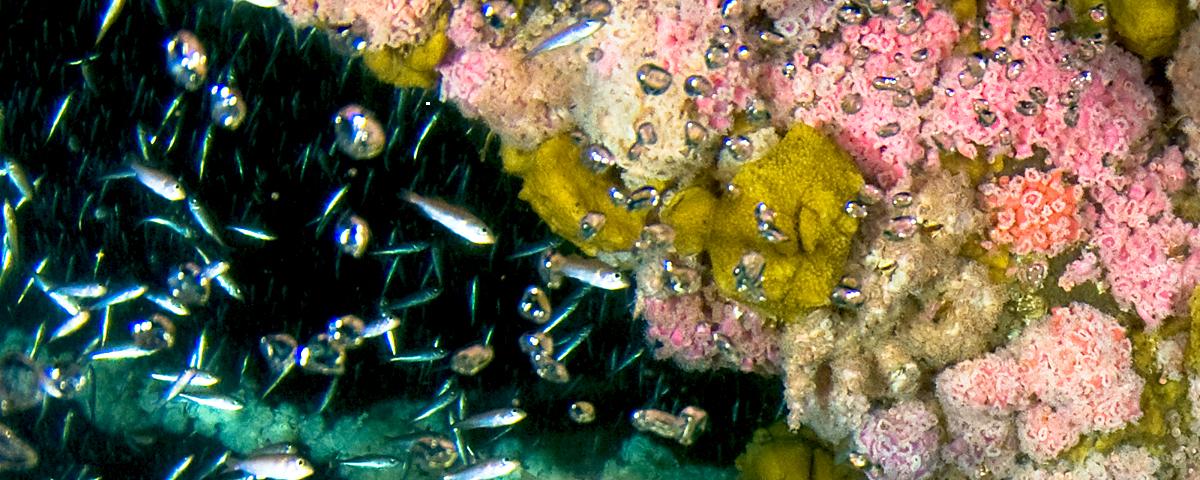Ecological Issues Related to Decommissioning of California’s Offshore Production Platforms
Abstract
From the Executive Summary: “1. Surveys of platforms in California waters reveal that they harbor rich assemblages of marine organisms, including many fishes and invertebrates that typically occur on natural rocky reef substrates. The particular species present on any given platform depend on the biogeographic setting of the platform and its depth, as well as other factors. Despite the fact that platforms can harbor abundant marine life, it is the platform’s contribution to regional stocks of species that is the crucial metric for evaluating its ecological impact. This is due to the fact that most marine species consist of a series of local populations (such as would occupy a reef) that are linked together by larval dispersal of young stages.
The interdependence of populations means that impacts at any one location must be considered in the context of the regional set of local populations. Most extant assessments of possible biological effects of platforms are fundamentally flawed because they focus on local and not regional effects. At present there is not any sound scientific evidence (that the Committee is aware of) to support the idea that platforms enhance (or reduce) regional stocks of marine species.
2. The total “reef” area represented by the 27 California platforms is extremely small in relation to regional availability of hard bottom substrates, suggesting that for the majority of species any regional impacts (whether positive or negative) of a decommissioning option are likely to be small and possibly not even detectable empirically.
3. However, because species differ greatly in life history, population dynamics, and geographic distribution, it is possible that platforms could have a more substantial effect (either positive or negative) on some key species. These species might be of special interest from a management point of view – rare or endangered, of economic importance, etc. In such cases, further study of effects of decommissioning alternatives, using approaches outlined in this report, could yield the scientific information needed to predict impacts of decommissioning alternatives in the context of overall management strategies. Species of special concern could include, for example, several rockfishes whose low abundance has triggered severe restrictions on harvest and the creation of rebuilding plans by the Pacific Fishery Management Council (McCall et al. 1999). Bocaccio, for example, is estimated to have declined to about 1 percent of virgin biomass. Love et al. (2000) reported that Platform Gail had a density of adult bocaccio an order of magnitude greater than the average density found on 61 natural reefs in appropriate depths. The issue, then, is to evaluate whether these higher densities of some populations on platforms persist through time, and if so, whether they could have a positive effect on regional stocks, given the very small surface area that the offshore platforms represent.
4. Decommissioning of offshore oil production facilities will involve offshore as well as onshore structures, and the various alternatives would involve a broad array of possible consequences that include not only the marine ecological effects we have addressed, but also economic, political and social impacts. These factors would need to be evaluated together to reach a final decision as to whether a decommissioning alternative other than platform removal is desirable. Nevertheless, with the current state of knowledge, predicting effects of decommissioning options on regional stocks of marine species is not possible. Indeed, there is no clear evidence of biological benefit (in the sense of enhancement of regional stocks) of the platforms in their present configuration.
Thus, in light of the lack of strong evidence of benefit and the relatively small contribution of platforms to reef habitat in the region, evaluation of decommissioning alternatives in our opinion should not be based on the assumption that platforms currently enhance marine resources.”

